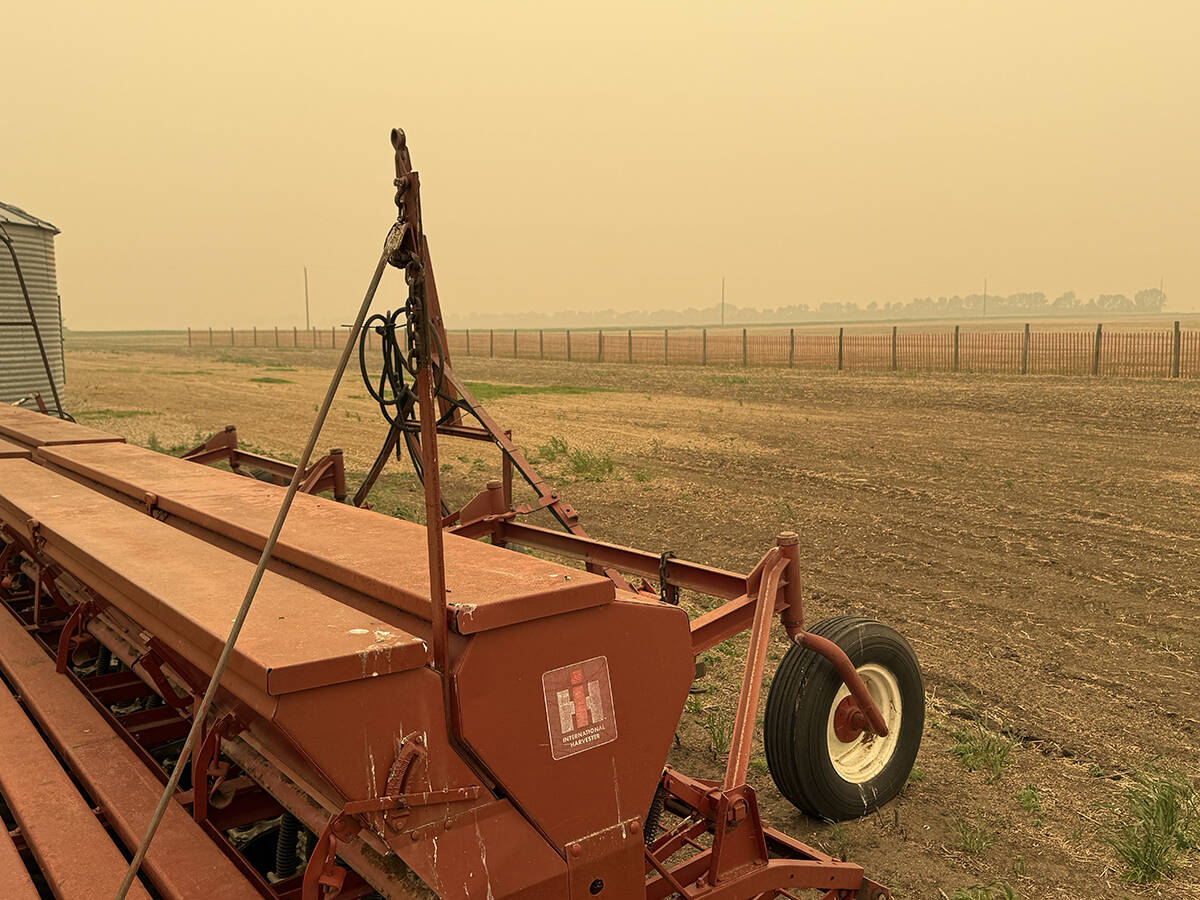Canadian beef producers have found new allies among Alaskan cattle producers and the state government in their effort to reopen the U.S. border to live Canadian cattle, says the past-president of the Canadian Cattlemen’s Association.
During a special conference in Alaska, that state’s beef producers, dairy industry and government officials requested an exemption from the United States Department of Agriculture to open the border between Canada and Alaska to live cattle.
“They’re really desperate to get the border open,” said Neil Jahnke of Gouldtown, Sask., who attended the August conference.
Read Also

Wildfires have unexpected upside this year
One farmer feels smoke from nearby wildfires shrouded the July skies and protected his crop from the sun’s burning rays, resulting in more seeds per pod and more pods per plant.
“They’re concerned about replacement animals, especially in the dairy industry.”
The Opening the Alaska-Canada Border to Cattle Conference was organized by the Alaska Farm Bureau, that state’s farm organization, whose members are beginning to feel the effects of the closed border, said Jane Hamilton, its executive director.
“It was a strategy working session to come up with a plan to request a special exemption to open the Alaska-Canada border,” said Hamilton, of Delta Junction, Alaska, about the meeting.
Because Alaska is not connected by land to the rest of the U.S., most beef and replacement dairy cattle are brought from Canada by truck. With the border closed, the 200 cattle producers and seven dairy operations have no access to live cattle, she said.
“At this point we’re just so frustrated that you’ll never get one if you don’t ask.”
Since the border closed, the only way Alaska producers can get live cattle is by barge or air, both too expensive.
While most grocery stores bring in milk and meat from the lower 48 states, many consumers prefer locally grown produce, said Hamilton. After several days on the truck and a few days in the store, it’s not uncommon for the milk to go sour before it’s even opened. All the meat is brought in frozen.
Hamilton said producers can’t keep up with demand without replacement animals.
Jahnke said while pressure from Alaska alone won’t open the border, one more voice helps.
“It’s one more ally and anytime we get an organization or a state or a senator or whoever, it’s certainly going to help push it forward. It’s certainly not the solution in itself … but every ally we can get will help push it ahead, I’m sure.”














